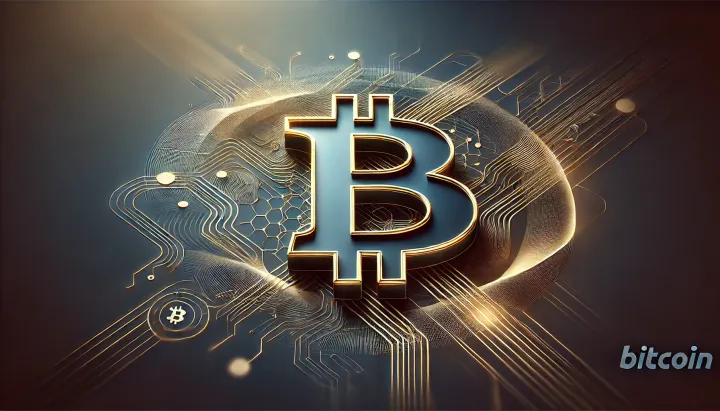Strategic Bitcoin Reserve: A Path for U.S. Stability and Innovation
The October 29, 2024 episode of the Robin Seyr podcast features Dennis Porter discussing the potential of Bitcoin as a U.S. strategic reserve, emphasizing its capacity to stabilize purchasing power, balance energy grids, and support renewable energy development.

- My 'briefing notes' summarize the content of podcast episodes; they do not reflect my own views.
- They contain (1) a summary of podcast content, (2) potential information gaps, and (3) some speculative views on wider implications.
- Pay attention to broadcast dates (I often summarize older episodes)
- Some episodes I summarize may be sponsored: don't trust, verify, if the information you are looking for is to be used for decision-making.
Summary
The October 29, 2024 episode of the Robin Seyr podcast features Dennis Porter discussing the potential of Bitcoin as a U.S. strategic reserve, emphasizing its capacity to stabilize purchasing power, balance energy grids, and support renewable energy development. Porter advocates for state-led Bitcoin reserves, highlighting legislative efforts and political engagement as essential to securing Bitcoin’s role. The discussion underscores bipartisan support opportunities, especially within the renewable energy sector, and explores how Bitcoin could elevate U.S. economic leadership amid global monetary shifts.
Take-Home Messages
- Strategic Reserve Asset: Bitcoin offers the U.S. an inflation-resistant, stable asset for safeguarding purchasing power.
- Grid Support with Renewable Energy: Bitcoin mining aids grid stability by utilizing curtailed renewable energy, supporting environmental goals.
- Bipartisan Policy Potential: Bitcoin aligns with interests across the political spectrum, facilitating renewable energy integration and economic resilience.
- Need for Political Advocacy: Active political engagement by Bitcoiners is critical to securing policies that support Bitcoin’s broader adoption.
- Global Economic Role: A U.S. Bitcoin reserve could position the nation as a leader in digital asset strategy, shaping international economic trends.
Overview
In the October 29, 2024 episode of the Robin Seyr podcast, Dennis Porter discusses the concept of Bitcoin as a strategic U.S. reserve asset, suggesting that Bitcoin’s non-debasable nature makes it an ideal tool for preserving purchasing power over the long term. He explains that Bitcoin’s fixed supply could provide the U.S. with a hedge against inflation, offering an alternative to fiat currency’s diminishing value. Through legislative efforts led by Satoshi Action Fund, Porter envisions Bitcoin reserves at the state level by 2025, emphasizing that proactive policies can position the U.S. as a global leader.
Porter highlights Bitcoin mining’s symbiotic relationship with renewable energy. He argues that Bitcoin mining can stabilize grids by absorbing surplus energy, especially from wind and solar sources that would otherwise go to waste. This grid-balancing role not only supports renewable energy initiatives but also promotes economic returns for renewable investments, particularly in states like Texas and California that face significant energy curtailment.
Political participation is a central theme, with Porter urging Bitcoiners to advocate for supportive policies. He outlines growing bipartisan interest, noting that Republicans generally support Bitcoin’s broad energy use, while Democrats are interested in its renewable energy applications. Educating policymakers, he stresses, will be crucial to ensuring informed, favorable legislation.
Lastly, Porter discusses the potential synergy between stablecoins and Bitcoin in enhancing the U.S. dollar’s reach. While stablecoins may expand the dollar’s influence globally, Bitcoin serves as a long-term savings technology, strengthening U.S. economic resilience. This dual approach, Porter suggests, could bolster U.S. monetary leadership if Bitcoin is embraced as a strategic reserve, impacting both domestic and global economic dynamics.
Stakeholder Perspectives
- State Policymakers: Interested in economic resilience and renewable integration, viewing Bitcoin as a vehicle for regional growth and energy innovation.
- Federal Regulators: Wary of Bitcoin’s energy demands but open to bipartisan solutions that align with environmental objectives and grid stability.
- Renewable Energy Sector: Supports Bitcoin mining as a way to monetize excess renewable energy, thereby reducing energy waste and increasing grid efficiency.
- Environmental Advocacy Groups: Concerned about Bitcoin mining’s environmental impact, advocating for sustainable energy use and policy alignment with green initiatives.
- Bitcoin Miners: Seek state support for strategic reserves and secure grid access, highlighting Bitcoin’s benefits to grid balancing and rural job creation.
- General Public and Bitcoin Advocates: Prioritize self-custody rights and pro-Bitcoin policies to ensure financial autonomy and regulatory clarity.
Implications
The U.S. adoption of Bitcoin as a strategic reserve could redefine economic policy, placing the nation at the forefront of digital asset adoption. Bitcoin’s role in state-level reserves could signal a broader trend, with other countries potentially following suit to hedge against inflation. Such a shift could foster economic resilience both domestically and internationally, offering a hedge that transcends traditional fiat limitations.
Bitcoin’s ability to integrate with renewable energy presents an opportunity to strengthen U.S. energy policy. As Porter notes, Bitcoin mining’s alignment with curtailed renewable energy could make it a pivotal player in stabilizing the energy grid and advancing environmental goals. Policymakers who understand these benefits may create favorable conditions for Bitcoin, enhancing the U.S.’s role as a leader in both energy innovation and digital assets.
Future Outlook
The future for Bitcoin as a strategic reserve in the U.S. hinges on legislative momentum and bipartisan support. State-level efforts, as Porter explains, could pave the way for a comprehensive national strategy, positioning the U.S. at the leading edge of digital asset policy. With legislative wins at the state level, this decentralized approach may compel federal policymakers to consider Bitcoin’s broader potential as an economic stabilizer and grid partner.
Political advocacy and education will be key to sustaining progress. As Bitcoin gains traction across states, policymakers may shift their focus from whether to adopt Bitcoin to how best to implement it. Porter suggests that proactive, informed engagement with lawmakers can secure Bitcoin’s future role, aligning it with U.S. interests in economic stability, energy security, and global leadership.
Information Gaps
- How does Bitcoin’s volatility affect its potential to serve as a reliable inflation hedge? Addressing Bitcoin’s volatility is essential for understanding its viability as a strategic reserve. By examining how fluctuations impact its inflation-hedging potential, policymakers can better gauge its effectiveness as a long-term financial stabilizer.
- How does the lack of Bitcoin-specific knowledge among policymakers impact legislative decisions on digital assets? This question is crucial because legislative gaps in understanding Bitcoin’s properties could lead to uninformed policies. Identifying effective educational approaches will be key to developing supportive legislation that maximizes Bitcoin’s potential.
- What regulatory changes could encourage renewable energy partnerships with Bitcoin mining operations? Exploring regulatory adjustments to support renewable partnerships is fundamental for leveraging Bitcoin’s grid-stabilizing benefits. Insights here can help shape policies that encourage sustainable mining practices and enhance grid efficiency.
- What are the key points of contention between political parties on Bitcoin, particularly regarding its energy consumption? Understanding bipartisan concerns, especially around Bitcoin’s energy use, could provide a pathway to stronger political alignment. This insight is necessary to create policies that appeal to both sides of the political spectrum and support Bitcoin’s role.
- What would the implications be for U.S. economic policy if Bitcoin were to become a widely held strategic reserve globally? This question examines the potential for Bitcoin to influence global economic dynamics and U.S. dollar dominance. Answering it could yield insights into Bitcoin’s broader role in international finance, positioning it as an economic stabilizer.
Broader Implications
Economic Stability and Bitcoin as a Strategic Reserve
Bitcoin’s adoption as a U.S. strategic reserve could encourage other nations to consider digital assets for economic stabilization, initiating a shift from fiat-dominated reserves to alternative, non-debasable assets. This trend may redefine global financial practices, positioning Bitcoin as a core part of economic strategy across various governments, particularly those seeking hedges against inflation and fiat volatility. Such adoption could enhance Bitcoin’s legitimacy, further supporting its role in stabilizing purchasing power on an international scale.
Energy Policy and Renewable Integration
Bitcoin mining’s role in grid stability may drive policies supporting renewable energy integration, aligning Bitcoin with global energy transition goals. By monetizing curtailed energy, Bitcoin miners can support renewable energy developers financially, reinforcing the reliability of renewables within the energy market. This synergy offers a pathway for Bitcoin mining to become integral to sustainable energy policies, potentially attracting positive attention from both policymakers and environmental advocates.
Political Advocacy and Bipartisan Support
The need for political engagement among Bitcoiners signals a new era in which Bitcoin could foster bipartisan policy initiatives, particularly around renewable energy and economic stability. With increased advocacy, Bitcoin may bridge political divides by offering solutions that align with diverse agendas, from energy innovation to fiscal conservatism. Such bipartisan support could lead to policy frameworks that protect Bitcoin’s role, ensuring secure self-custody, grid participation, and financial autonomy.
Environmental Policy and Sustainable Mining Practices
Bitcoin mining’s connection to renewable energy may transform environmental narratives, positioning Bitcoin as a sustainable technology within the clean energy sector. By supporting grid stability and reducing energy waste, Bitcoin could gain traction as a low-impact energy consumer, appealing to both industry stakeholders and policymakers. If these sustainable practices are reinforced through supportive regulations, Bitcoin could mitigate environmental criticisms, fostering broader societal acceptance.



Comments ()